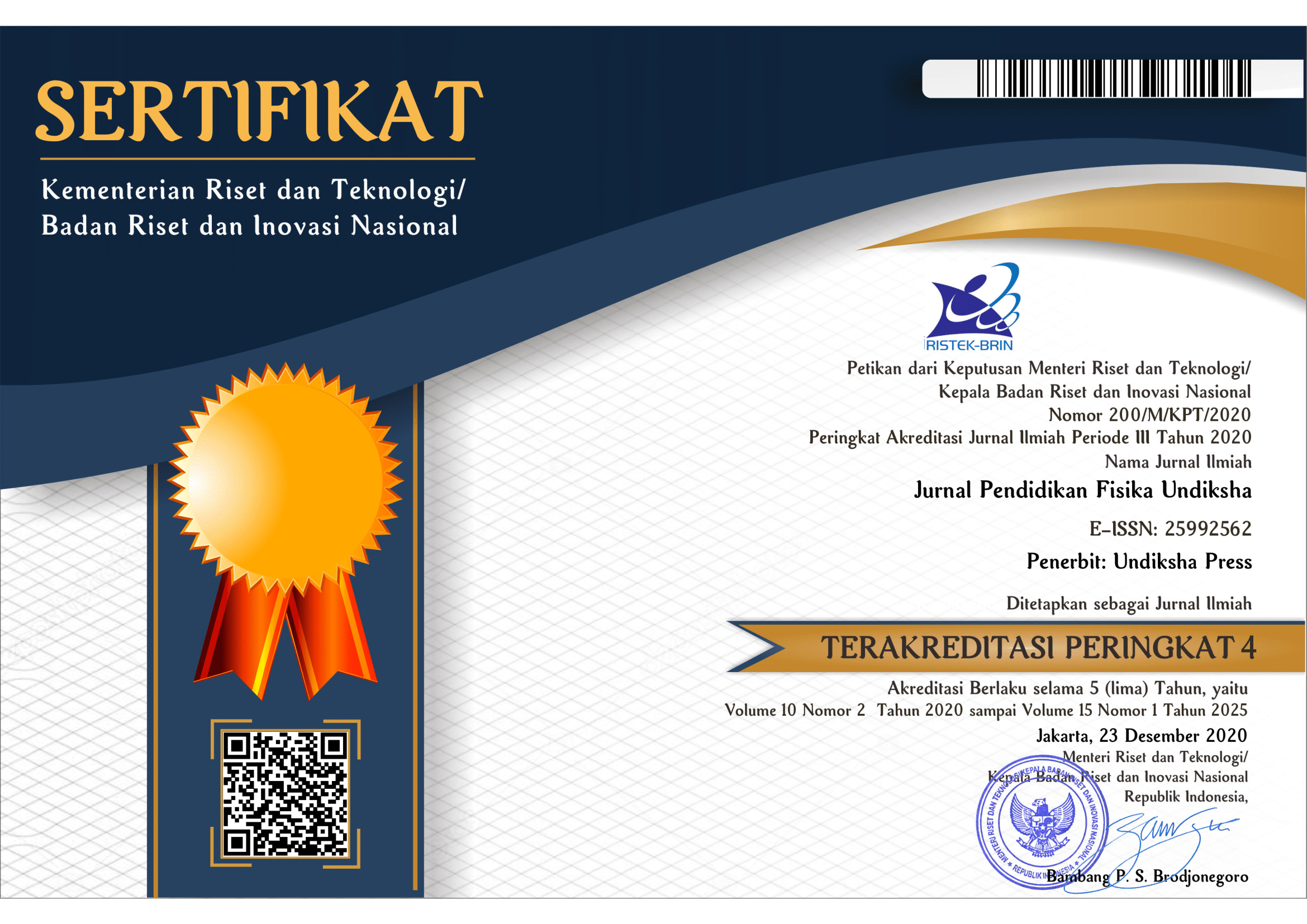PENGARUH MODEL PEMBELAJARAN KOOPERATIF TIPE STAD (STUDENT TEAMS ACHIEVEMENT DIVISION) TERHADAP PEMAHAMAN KONSEP IPA SISWA KELAS VIII SMP NEGERI 6 SINGARAJA TAHUN PELAJARAN 2013/2014
DOI:
https://doi.org/10.23887/jjpf.v1i1.3466Abstract
Penelitian ini bertujuan menganalis pengaruh model pembelajaran kooperatif tipe STAD terhadap pemahaman konsep IPA siswa mengenai materi Cahaya dan Alat-alat optik. Jenis penelitian ini adalah quasi experiment dengan rancangan pretest-posttest nonequivalent control group design. Populasi penelitian ini adalah seluruh siswa kelas VIII semester II SMP Negeri 6 Singaraja Tahun Pelajaran 2013/2014 yang berjumlah dua belas kelas (393 siswa). Sampel diambil melalui teknik simple random sampling dan berjumlah empat kelas (138 siswa). Instrumen yang digunakan adalah tes pemahaman konsep yang memiliki reliabilitas (r= 0,86). Data dianalisis menggunakan statistik deskriptif, ANAKOVA, dan uji LSD. Hasil penelitian menunjukkan, bahwa terdapat perbedaan pemahaman konsep IPA antara siswa yang belajar dengan menggunakan model pembelajaran kooperatif tipe STAD dan siswa yang belajar menggunakan model pembelajaran langsung (F= 3573,148; p<0,05). Skor rata-rata pemahaman konsep siswa yang belajar dengan model pembelajaran kooperatif tipe STAD (M = 72,00 dan SD = 7,82) lebih baik daripada siswa yang belajar dengan model pembelajaran langsung (M = 56,00 dan SD = 8,26).Kata Kunci : pengetahuan awal, model pembelajaran, dan pemahaman konsep.
This study aimed at analyzing the influence of STAD (Student Teams Achievement Division) type cooperative model towards science concept understanding of students in “Light” and optical instruments topics. The design of this study was quasi experiment with pretest-posttest nonequivalent control group design. Population of this study were twelve classes (393 students) at eights grade of SMPN 6 Singaraja in academic year 2013/2014. Four of twelve classes (138 students) were chosen randomly as samples by using simple random sampling technique. The instrument of this study was the test of concept understanding which had the reliability r=0,86. They were analized by using descriptive statistics, ANCOVA, and LSD. The result of this study shows that there are significant differences of concept understanding between the students who learn by using STAD (Student Teams Achievement Division) type cooperative model and students who learn by using direct intruction model F= 3573,148; p<0,05. The average score of concept understanding of students who learn by using STAD (Student Teams Achievement Division) type cooperative model (M = 72,00 and SD = 7,82) is better than the average of students who learn by using direct intruction model (M = 56,00 and SD = 8,26).
keyword : prior knowladge, learning model, and concept understandingj
Published
2014-07-15
Issue
Section
Articles
License

Jurnal Pendidikan Fisika Undiksha is licensed under a Creative Commons Attribution-ShareAlike 4.0 International License.






